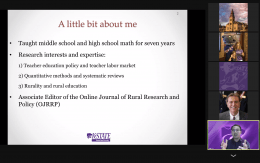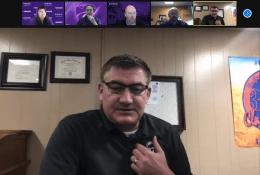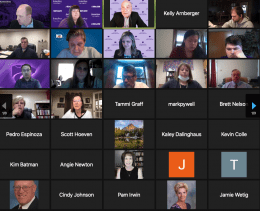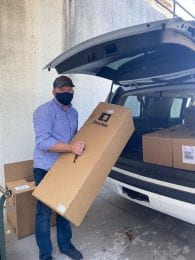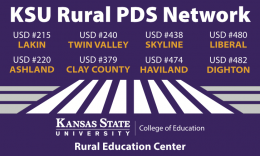Students in Kansas State University’s College of Education gathered in late September for the first meeting of ED ASTRA, an organization designed for students interested in teaching in rural settings. ED ASTRA stands for Education Advocates Supporting Teachers in Rural Areas and is a take-off of the Kansas state motto. Besides building a community of rural-focused future teachers, part of the members’ responsibilities would involve visiting rural schools to promote teaching as a career.
The group’s initial meeting featured Matt Weller, principal of Lincoln Elementary School in Clay County USD 379. Weller, a graduate of K-State’s College of Education, discussed the value of teaching in a rural district, as well as his journey into administration. Weller was also instrumental in the college’s beginning efforts regarding tele-presence in education.

“Partnering with rural schools and communities is a foundational part of our mission,” said Debbie Mercer, the Dean of the College of Education. “By doing so, rural communities will become more sustainable and continue to grow in capacity and knowledge. With ED ASTRA, we want to help those future rural educators be prepared for their careers in rural communities.”
If you are interested in participating in a future meeting of ED ASTRA or have students who may be interested in a career in education, please contact us at ruraled@ksu.edu.
In addition to supporting students with a rural focus, the College of Education has several pathways to teaching that may benefit students and community members in rural areas. The online Bachelor of Education degree allows students to live and work in their home communities while completing a degree online. This is an affordable and convenient option for students to obtain an exceptional educational experience from Kansas State University without having to leave their community and support network. More information can be found at: https://online.k-state.edu/programs/elementary-education-bachelors/
For adult learners who are considering a change in career into the field of education, Kansas State University offers the Master of Arts in Teaching degree. This one-year program is for students who have previously completed a bachelor’s degree. MAT pathways are available for Elementary, K-6; Modern Languages, K-12; Social Studies, 6-12; English/Language Arts, 6-12; Agriculture Education 6-12; and a non-licensure international track. For more information, please see: https://coe.k-state.edu/academics/program-areas/master-of-arts-teaching/



 Here’s an article discussing the perceptions of postsecondary education and training in rural areas:
Here’s an article discussing the perceptions of postsecondary education and training in rural areas:


